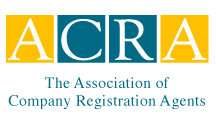The matter with which the Bulgarian authorities have been struggling for several years now has led them to consider new measures to regulate the hiring of workers from third countries, EU Helpers reports.
According to a report from Fakti, the problem was revealed following the disappearance of seasonal workers from Sunny Beach. In the majority of cases, foreign workers with work visas from Bulgaria go to Europe.
The visa allows them to travel to the EU countries freely, however, the work permit is only valid for the country for which it is issued, or more specifically for Bulgaria.
The Deputy President of the Bulgarian Chamber of Commerce, Maria Mincheva has said that this brings a problem for both employees and employers as well as for the member states.
More than 12,000 Work Permits Granted in 2023
The figures from the Employment Agency (EA) revealed that from January 1 until November 17, 2023, over 12,000 internationals from countries outside the EU were granted several types of work permits in Bulgaria.
EA’s statistics reveal that the number of workers from third countries who were granted a work permit in the first 11 months of last year was 1,556.
The majority of them were nationals of the following countries:
- Türkiye (1,309)
- Kyrgyz Republic (75)
- Russia (43)
For a period from January 1, until November 23 last year, 6,837 people from non-EU countries have registered for seasonal employment for up to 90 days in Bulgaria.
The majority of them were employed in the hotel and catering industry, as well as agriculture, fisheries and forestry. They worked mainly in the following resorts: Sunny Beach, Albena, Golden Sands, Nessebar, Bansko and Razlog.
The majority of them were nationals of the following countries:
- Kyrgyz Republic (2033)
- Türkiye (1364)
- Moldova (1058)
Over 2,000 Foreigners With Long-Term Residence & Work Rights
The figures from the Migration Directorate revealed that in the first 11 months of last year, 2,134 third-country nationals have been granted the right for permanent residence and work, based on the Aliens Act in Bulgaria through the EU Blue Card.
For a period from January-November, a total of 879 third-country nationals were granted the right for permanent residence and work in Bulgaria.
In a bid to deal with labour shortages noted in several fields, authorities in Bulgaria, up to this point, have bilateral agreements with several countries including Israel and Moldova.








